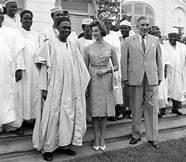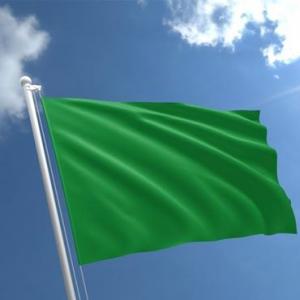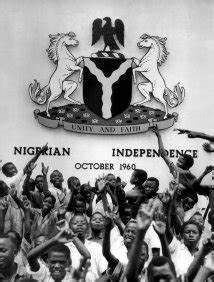1960
Nigeria's Independence in 1960
- By solomon2day
- On 28/09/2020
- Comments (0)
- In Solomon's Column
 The Federation of Nigeria came into being in 1954 and in the same year, the Federal Government of Nigeria was introduced, this was a year after, Chief Anthony Enahoro moved a motion for independence in 1953.
The Federation of Nigeria came into being in 1954 and in the same year, the Federal Government of Nigeria was introduced, this was a year after, Chief Anthony Enahoro moved a motion for independence in 1953.
The Nigerian leaders then, had to travel to Great Britain for a conference, which deliberated on matters pertaining to Independence, in 1957, on their return, self-Government, commenced in the Eastern and Western regions.
The following year, 1958, a second conference came up in Great Britain, which laid the foundation for independence, while federal elections were conducted in December 1959 and the late Sir Abubabakar Tafawa Balewa emerged the Prime Minister of the Federation of Nigeria.
The Northern region of Nigeria also became self-governing in the same year.
Nigeria became an independent nation on 1st October, 1960, after the joint houses of Legislature unanimously passed the motion for independence and Sir James Robertson emerged as the first Governor-General of independent Nigeria. On November 16, 1960, Dr. Nanmdi Azizkiwe was appointed the first Nigerian Governor General of the Federation of Nigeria.
Before this time, on 1st October, 1960, the Queen of England was represented by Prince Alexandra at the independent day celebrations.
Princess Alexandra unfolded the Nigerian flag of Green, White and Green which replaced the Union Jack of Great Britain.
Between 1st October, 1960 and 1st October, 1963, Nigeria's allegiance was to the Queen of England. The Governor General represented the Queen in Nigeria.
On October 1, 1963, Nigeria became a Republic and as a result no longer had constitutional connection with Great Britain. The Supreme Court in Nigeria now became the highest court to which litigation of all sorts were channeled to.
Today, the loans and bonds by Government at all levels, which run into Trillions of Naira, perhaps, has compromised the sovereignty of the nation.









